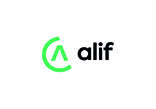What are the challenges to financial inclusion in a frontier market such as Tajikistan?
Mr Shakhidi: Let’s consider the question in two parts: credits and payments. The challenges in the credit sector in most frontier markets are high interest rates, traditionally high NPL rates, high level of dollarisation, insufficient trust in the banking sector and the usually limited credit scoring infrastructure. The challenges in the payments sector include the low level of internet penetration, limited financial literacy, and high levels of taxes that drive merchants’ reluctance to adopt electronic payments. But where there are challenges, there are opportunities.
How are the regulators and the government fostering an innovative environment?
Mr Shakhidi: The government and regulators in Tajikistan have adopted measures to increase financial inclusion, in particular, the law on credit history, the law on payment services and payment systems, movable property collateral registry and among others, the central bank policies focused on improving the quality (over quantity) of financial institutions.
The credit sector has witnessed remarkable progress in falling interest rates, dollarisation and NPL levels. Furthermore, these changes are ushering in the start of an electronic payments boom in Tajikistan, with numerous financial organisations offering new payment solutions, which range from mobile wallets to electronic tax payments. Alif has been at the forefront of these developments, growing to a leadership position in a number of credit and payment products.
What is Alif Bank's strategy in enabling financial inclusion?
Mr Shakhidi: Alif was founded in 2014 by Abdullo Kurbanov, Zuhursho Rahmatulloev and Firdavs Mirzoev, soon after their return to Tajikistan from years of educational and professional endeavours abroad. Over the past five years, the company has transformed into one of the country's prominent FinTech companies, offering an ecosystem of technological and financial solutions to its clients. Alif is a market leader in POS financing through installment-based club-cards, commission-free overdrafts, the largest online B2C platform (alif.shop), the most widely used mobile wallet (alif.mobi) in the country and exclusive integration with the country’s largest classifieds website. These services are facilitated by several internally developed software programs: a core banking system, CRM, mobile wallet, card processing and an HR and recruiting system, all developed by Alif’s team of more than 50 software engineers. Having developed these core strengths, Alif is now expanding internationally, with its first office in Uzbekistan. Alif is also working towards making remittances cheaper and faster.
Can you tell us more about alif.mobi?
Mr Kurbanov: Alif.mobi is a mobile wallet that can be topped up through a widely available terminals network (more than 4000 in the country) and plastic cards (more than 1.5 million). It can be used to make a broad range of payments, ranging from utility bills, p2p to QR payments at shops and restaurants. We initially tried a white-label solution, but mainly due to the slow speed of customisations, we eventually opted for an in-house solution, which we finally rolled-out in September 2018. Rigorous testing and experimentation through trial and error helped us to select the optimal technology and features, resulting today in a market share of half of all mobile wallet users and the largest merchant network in the country.
What are the main challenges for Alif going forward?
Mr Kurbanov: The first key challenge for most disruptive startups in frontier markets is scaling. Most local markets considered separately are relatively small, so geographical expansion
becomes not a choice but a necessity. In a way, overcoming the set of difficulties in the nascent and developing market of Tajikistan has been a great learning curve and we are keen to translate these lessons into solutions we could provide within a broader set of countries. Alif.mobi, for example, has been prepared with scaling in mind, including multi-currency and multi-tenant features, and we are open to partner with banks in other countries to roll-out the product together.
Funding is another major challenge. Debt funding is expensive, ranging from 8 to 10% annual rates in USD. In our case, we also had to educate and gain the trust of our investors for our loans based on a revenue-sharing model (invest.alif.tj) – Alif was founded with a commitment to comply with the principles of Islamic finance and over time our model proved robust. We are now working with a broad range of local and international investors, ranging from individual retirees to a private Swiss bank.
Equity funding is even more challenging. Alif was blessed with the strong backing of Tajikistan and UK-based investors, and another milestone was reached with the backing of Khofiz Shakhidi, which, among other aims, helped Alif to obtain a full-fledged banking license in Tajikistan.














